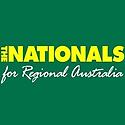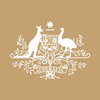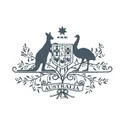
Doorstop – Melbourne | Prime Minister of Australia
ROB MITCHELL, MEMBER FOR MCEWEN: Well, I’d like to welcome everyone here today as we stand on the lands of the Wurundjuri Woi-wurrung people and acknowledge our elders past, present, emerging and remind ourselves that it was, is, and always, always will be Aboriginal land. And this year we have an exciting opportunity to bring this country together through a Voice and through recognition in the Constitution. Last week we set down a Budget in Canberra. So, when I came back to Melbourne this week, I thought I’d bring a mate along to have a chat, to come out here and see the wonderful surrounds of Diamond Creek where we live, where we’ve got such a beautiful atmosphere and some wonderful people. So, with that, I’d like to hand over to the Prime Minister and say, thank you for being in McEwen. You’re always welcome and it’s good to have you back here.
ANTHONY ALBANESE, PRIME MINISTER: Well, thank to you very much, Rob, and it is great to be here just less than a week after we handed down our second Budget. We haven’t yet been in government for a year, but what my government’s been focused on is delivering on the commitments that we took to the Australian people in 2022 and received an endorsement for. And the largest on-budget commitment that we made was to support child care, not as welfare, but as economic reform. It’s about boosting productivity. It’s about boosting workforce participation. And importantly, it’s about gender equality. It’s about making sure that women can participate in the workforce, that they can retire with higher incomes and higher superannuation going forward. Treasury estimates that our commitment of $4.7 billion over four years will result in some 1.4 million hour per week in terms of the workforce. What that is the equivalent of is adding 37,000 full time workers to our workforce. 37,000. Now, at a time when we have acute skill shortages, when we need people in our workforce, when unemployment is at just 3.5 per cent, this is a significant benefit to our national economy. But it does something else as well. It’s a significant benefit for our youngest Australians because we know that early learning is so important, that over 90 per cent of human brain development occurs in the first five years. And I want to pay tribute to the early learning educators who are here with us today at this wonderful centre here in the McEwen electorate. Because they don’t do it for the money. I did notice that people have worked here eleven years and seven years, have worked here for a long period of time. And for two of the workers who we spoke to this afternoon, this was essentially their first job and they’ve just stayed here from training right through because of their commitment to lifting up the opportunity that the young people, the very young people who go through this wonderful centre, will go on to contribute to their lives. And it’s always fantastic to be back in a centre like this because it is uplifting. And I thank the council and the mayor for the welcome today as well.
LIBBY AUDLEY, PARENT: Hi, everyone. My name is Libby. We’ve had a connection to the centre for about 12 years. I’ve had a number of children come through the centre, we’ve got Eva, who’s our youngest who is three, and she comes four days a week. So for us the changes to childcare subsidy will mean a great deal for our family. Currently we pay about just over $300 a week for a Eva to attend four days. So the changes with the childcare subsidy will mean that we that will be about $40 or $50 less per week, which is really important for us because as you know, the cost of living is going up with our older children. That saving is really helpful for sport, for school fees, groceries. There’s lots of things that we will be able to use the savings for, as well as enabling me to remain in the workforce. And I think our affiliation with this centre has been really special in that, at times, child care has been very expensive. And often I have worked to pay for child care. But with some of the changes that have come through in the last few years, it’s allowed me to remain in the workforce, whilst also allowing our children to have quality early education.
EMMA MOBBS, PARENT: Hi, I’m Emma, I’ve got my two girls at the centre here. They are three and four years old. With our situation, with these current changes coming in, we are looking to be saving approximately $20 a day for our oldest and a little bit more for our youngest. So that’s going to make a huge difference to our weekly budget. Just with everything going up and me working part time, it just means that we will have more money left over at the end of the week to do more things with the kids, which just means more quality time that we can spend with them doing the things that they really enjoy. So we think it’ll be a great benefit to our family and all families with children in the early education system.
PRIME MINISTER: Thanks so much Libby. And Emma. They’re just two of the family members of the more than 6500 here in the McEwen electorate who will benefit from our policy, more than 300,000 families across Victoria, and more than 1.2 million families across Australia. So earlier today, I was at a skill centre in Adelaide. And I’ve also been at a medical centre, talking about our bulk billing incentives and our tripling of that. I know there’s a bit of a debate about our budget. Let me say this: Middle Australia is Libby and Emma. Middle Australia will benefit from our child care reform. Middle Australia will benefit from our bulk billing incentive, from now halving of the costs of access to medicine. Middle Australia will benefit from our additional 300,000 fee-free TAFE places and our addressing of the skills crisis. Middle Australia will also benefit from the responsible budget that we handed down. A year ago, under the former government, there was due to be a $78 billion deficit. And instead there’s a forecast surplus of some $4.2 billion as a result of the responsible budgets that we’ve been responsible for in our first year, as we approach our one year anniversary in office.
JOURNALIST: Prime Minister, just on infrastructure here, do you think the Suburban Rail Loop is a better project than the Airport Rail Link? And which one in your eyes should be prioritised?
PRIME MINISTER: Well, we’re going through a review. Part of the problem of what occurred under the former government’s infrastructure plan was that they had hundreds of projects that weren’t properly funded. So weren’t able to do all of the commitments which were never going to be delivered. And if you go back, many of the commitments were promised way back a decade ago and nothing had happened. The Suburban Rail Loop is certainly a game changer. It’s something that will connect up Victoria around this growing city of Melbourne and make sure that you don’t have to go all the way into then go all the way out as well. From my experience as a former Infrastructure Minister, the three projects along the East Coast were all designed – Cross River Rail in in Brisbane and Melbourne Metro here in Melbourne and in Sydney you needed to address the City Circle Loop – are all aimed at increasing the capacity of the rail line. Suburban Rail Loop will certainly increase the capacity of the entire rail network and that’s why we made that commitment during the election campaign. We will have a very quick review over coming months of the infrastructure program to make sure, going forward, that what’s committed can actually be delivered and that the dollars are available, the timeframe is available, and that we get on with the business of nation building. One of the first things that the incoming Liberal Government did back in 2013 was to rip $3 billion out of the Melbourne Metro project. It would have been open and done by now, we would have been getting on with other rail projects here in Melbourne if it wasn’t for the actions of the Abbott Government. But good on the Andrews Government for getting on with building so much infrastructure here in Victoria.
JOURNALIST: Are you expecting some of those projects under review not to pass the test, that they won’t be built? Or is this just about reprioritising?
PRIME MINISTER: Well, in some cases, we know that there are examples of projects, road projects that had a costing of many hundreds of millions of dollars that had $50 million or $40 million allocated to it. Now that’s not ever going to proceed on that basis, you either have to find the additional money. And we’ve found right around Australia that that was the case. And during a recent by-election, there was a focus on some of some of those. So it’s a matter of getting what the facts actually are. The National Party, were good at announcements, they weren’t so good at building things. And whether it’s Inland Rail, that comes to Victoria but doesn’t actually go to a port, doesn’t go to a port in Brisbane either, doesn’t go to a port in Gladstone. They took inland too literally. The whole idea of the Inland Rail Project was to improve freight and improve exports, if it doesn’t go to a port it’s pretty hard to see how it works. And that was a cost of $31 billion before you add on the necessary links as well. So we’ll do the review. We’ll get the review. I don’t intend to preempt it. The review will go to Catherine King, the Infrastructure Minister, a proud Victorian who actually understands how you get infrastructure built. And it won’t be built with colour-coded spreadsheets either. It’ll be built on the basis of need and also built on the basis of agreement with state and territory governments, which is why we left the funding in the Budget to make sure that we continue to be a country and certainly, I’m a Prime Minister who has a record of building infrastructure in this country.
JOURNALIST: Has the Andrews Government or public servants made contact with the Federal Government requesting that the Airport Rail Project be delayed? Was that an initiative of theirs?
PRIME MINISTER: Well, the Andrews Government is going to participate and be part of the review. The Andrews Government have got on with building infrastructure enormously in this state, often with no support from the Federal Government. The truth is that the Andrews Government didn’t get its fair share of infrastructure funding from Coalition Governments over a long period of time, ever since they gutted funding to Victoria by gutting the funding of Melbourne Metro and gutting the funding of a range of other projects. We want to make sure that we get it right. And Catherine King as the Infrastructure Minister, will deal with specific issues. But I’m very confident that together with the Andrews Government will actually get outcomes. What we know is that there were a range of projects in the budget that the Andrews Government has never approached on. The worst examples of these are the commuter car parks, some of which were put in places where there aren’t train stations. It’s pretty hard to have a commuter car park where there’s no train station. That was the sort of nonsense that we saw from the former government, where if you were in a seat which was a target seat, then somehow you were viewed as more valuable than if it was a nation building project. And certainly projects like Melbourne Metro will be a nation building project, the Suburban Rail Loop will be as well.
JOURNALIST: There’s two interstate freight terminals one in this electorate in Beveridge and another one in the West. Your government initially preferenced the one in the West, the review has them back to being reviewed. And there was even another view that suggested they actually be built concurrently. I just wondered what your government’s stance was on that at the moment?
PRIME MINISTER: Well, you’ve answered your own question, which is that we’re looking at it. That’s an example, though, these projects, in terms of intermodals, can be really very important projects. But if you have a project like Inland Rail that was spoken about and spoken about and spoken about by Barnaby Joyce and others, but not with enough activity, and costing, it didn’t quite get this far in terms of progress, then that’s why you have to have a review.
JOURNALIST: There is a story today about flaws in the visa system, your government committed to releasing a report from Christine Nixon before the budget. That hasn’t happened. I was just wondering, what’s the status of that report? And are you committed to releasing it on a new timeframe?
PRIME MINISTER: We’ve received the report, it hasn’t been to Cabinet yet. Our focus, of course, was the Budget that we brought down just last week. Some of the deliberations on that fit into the migration announcements that were made by Minister O’Neill at the National Press Club, I think about 10 days ago now, in the week before the Budget. We’ve said we’ll release it. We will release it. But we need to give proper consideration. My government is one that when we we asked for a review, it then leads to action, it doesn’t just sit there. As we’ve already had over Infrastructure Australia review, over the RBA review. Over these issues my government acts quickly. We are still in our first year of office. But what we know from the Nixon Report, but also from the report that was undertaken by Martin Parkinson, the former Coalition-appointed head of the Department of Prime Minister and Cabinet, as well as a former Treasury head, is that our immigration system is not fit for purpose. We inherited over a million people on a visa backlog and a system that had just broken down. We have an over-reliance upon temporary migration in this country. We need to make sure that we give people that sense of ownership and belonging, that we attract in a globalised labour market, the skills that we need. And we need skills in the services sector, the caring sector such as this one and aged care. We also need skills in others as well. We need engineers. We need doctors. We need nurses. And what we should be doing is making sure that we don’t have the absurdity of bringing people in for just a couple of years and then not giving them that sense of ownership and belonging, that we welcome people and allowed them to put down roots here, to have a family here, to build a life in this country. And if we do that, then what you have is a far more effective system that works in the national interest.
JOURNALIST: Some of that report has been leaked and there’s allegations that because of the focus on foreign arrivals it’s been taken advantage of criminal groups, the current visa system. Are you disturbed by some of those findings?
PRIME MINISTER: I’m very disturbed, but I’m not going to talk about the report. But I was incredibly disturbed by the reports that were published by Nine Newspapers about this. The exploitation of people is something that’s abhorrent to Australian values. We’re a welcoming country. People come here to make a better life for themselves. Temporary migration does have a role to fill skills shortages temporarily, where those skills shortages are short term. But, overwhelmingly, we’re a country that prides ourselves on treating people properly. And the fact that in particular, human trafficking appears to have occurred, according to those reports, is one of the reasons why the former police commissioner Christine Nixon, who has experience in Victoria and in New South Wales, where I know Miss Nixon from. She was asked to do this review and to do this report, and it will be released when appropriate by the Minister.
JOURNALIST: Was Papua New Guinea’s Foreign Minister right to step aside for calling his people primitives?
PRIME MINISTER: I’m not going to engage in the foreign affairs issues of another country. I will just say that Papua New Guinea is a very important friends for Australia, Prime Minister Marape is well known to me, and gave me the great honour of being the first foreign citizen to address the PNG Parliament earlier this year in January, and I regard that as an incredible honour. And it is important that Australia continue to develop a constructive relationship with Papua New Guinea, along with our Pacific Island neighbours. We’ve been busy repairing the relationship, and my government is committed to improving Australia’s capability in defence, but we’re also investing in our relationships in the region and that includes Papua New Guinea.


